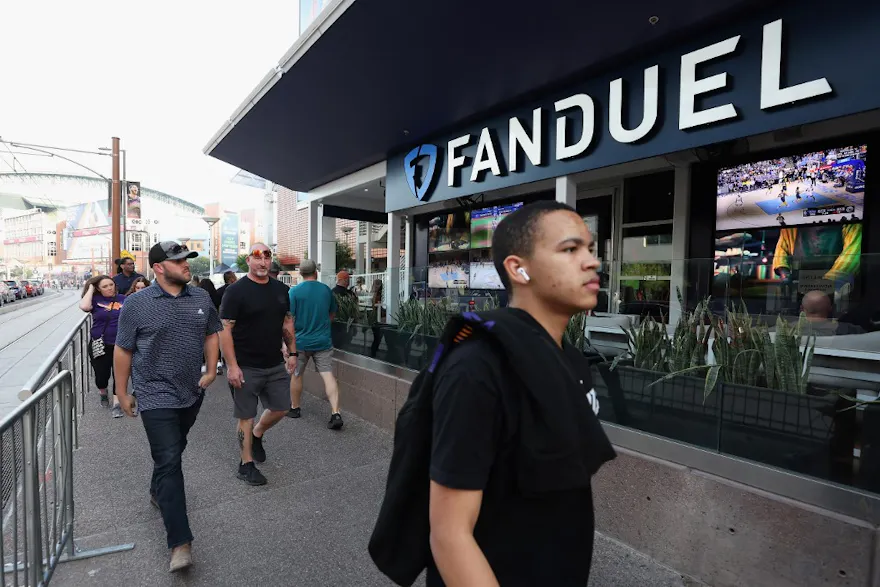Happy 5th Anniversary Legal U.S. Sports Betting Industry

May 14, 2018, at 10 a.m. ET will go down in history as the date that the U.S. Supreme Court struck down the Professional and Amateur Sports Protection Act (PASPA) and paved the way for individual states to decide on whether retail and mobile sports betting and sports betting sites were a fit.
Prior to 2018, sports leagues, sports teams, players, and politicians seemed to be in lockstep in their opposition to sports betting.
“We’ve been very open about our position that we oppose legalized sports gambling," NFL commissioner Roger Goodell said three years prior to PASPA being overturned. "We haven’t changed our position on that. I don’t anticipate us changing that going forward at all.”
Flash forward eight years, and 35 states in the country have their own legal sports betting platforms, including the best sports betting apps, while roughly 57% of the nation's population have access to retail and mobile sports betting. Sports leagues, teams, and players have partnered with sportsbooks, and individual states have been given the tax benefits from their legal sports betting platforms.
It's been quite a half decade for sports betting in the U.S., with little reason to think that momentum for legal sports wagering will slow down anytime soon.
AGA report reveals the overall support across the county
The American Gaming Association (AGA) recently released a report on the state of the iGaming market in the U.S. to coincide with the five-year anniversary of the overturning of PASPA. The findings are somewhat surprising with a huge number of those surveyed showing support for legal sports betting for their states.
Support for legal sports betting has grown from 63% in 2019 to a whopping 85% in 2023, according to the AGA report findings. Currently, 77% of those respondents think that legalization is appropriate for their states, 32.9 million adult Americans have placed at least one regulated sports bet, and 77% use licensed sportsbooks in their jurisdictions to place a bet.
“American adults have always enjoyed betting on sports, and overwhelmingly value the ability to bring their action into a legal market, close to home,” said AGA President and CEO Bill Miller. “The rapid spread of legal sports betting—fueled by regulated, responsible entities—has contributed to communities and established consumer protections by migrating betting away from the illegal market monopoly that PASPA perpetuated.”
Successes
By all accounts, the U.S. legal sports betting industry has been a resounding success. Over $200 billion has been legally bet with legal American sportsbooks since 2018, and the betting activity across the country has been gaining steam. In the last year alone, 32 million Americans have placed a legal, regulated sports bet, according to the American Gaming Association.
The rise of FanDuel and DraftKings has been a remarkable story over the last five years as well. Those names have become synonymous with sporting events, as have other sportsbooks that have signed sponsorship deals with the biggest leagues, teams, and players in the world.
Sports betting advertising is everywhere. You can’t escape it. It’s actually gotten to the point that regulators are getting involved.
Failures
There haven't been many failures from American legal sports betting platforms. But the curious omission of the three most populous U.S. states from the family has to top the shortlist.
California, Texas, and Florida have yet to legalize thanks to a variety of hurdles. In California, there's a disagreement between the state's tribes and the wagering providers over who control the platform. In Florida and Texas, conservative legislators are functioning as roadblocks to any legal sports betting legislation.
Overall, the U.S legal sports betting system finds itself in good form after five years of legalization. Growth is certain for the industry going forward – just how much remains to be seen.







